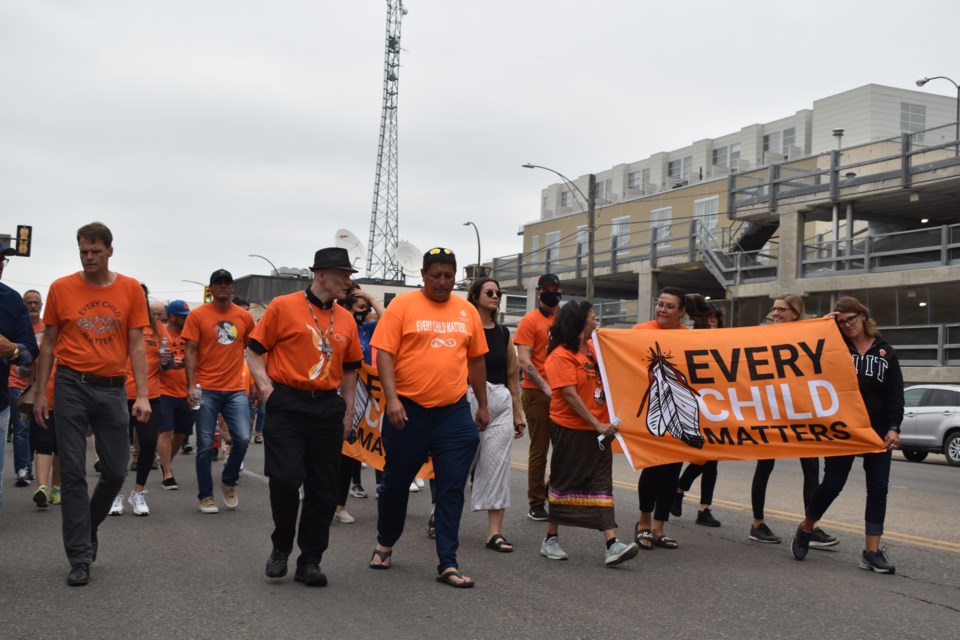SASKATOON — The City of Saskatoon will be marking the National Day for Truth and Reconciliation as a statutory holiday beginning Sept. 30 this year after the City Council unanimously approved the measure during their meeting last Monday.
Mayor Charlie Clark said it is important for leaders to honour the stories, horrifying as they may be, on the impact of Indian Residential Schools of survivors.
“Elders, Survivors, and members of the Indigenous community have been reaching out to non-Indigenous members about building a better future together, based on truth and reconciliation.”
He said, “By marking the National Day for Truth and Reconciliation, we are recognizing how important this is in continuing our journey forward.”
The Canadian Government passed legislation in June to make Sept. 30 a federal statutory holiday for federally regulated workers in the public and private sector. Following Council approval, starting Sept. 30, the National Day for Truth and Reconciliation will become a designated paid holiday for all city employees to recognize and commemorate the legacy of residential schools.
The Federal Government created this federal statutory holiday in response to the Truth and Reconciliation Commission’s Call to Action number 80: to honour Survivors, their families, and communities, and ensure that public commemoration of the history and legacy of residential schools remains a vital component of the reconciliation process.
Unmarked graves at residential schools in Saskatchewan and across the country have raised awareness about the “truth” of residential schools. It is more important than ever to ensure that education and awareness continues and the honouring of residential school survivors and the children who did not make it home is done appropriately.
The city continues to champion and implement the TRC’s Calls to Action by working with community partners to ensure its contributions to the collective movement.
To support efforts to elevate Sept. 30’s significance, the city is working with Reconciliation Saskatoon and other Indigenous organizations to develop messaging and tools to encourage people to take on their own Calls to Action, take up an initiative at their workplaces, encourage the community to read the Calls to Action, and find out on how to get involved.
Also known as Orange Shirt Day, wearing orange on Sept. 30 will continue to be a way to honour Indian Residential School Survivors, their families, and those who didn’t make it home. It’s a way to acknowledge the legacy of Indian Residential Schools, demonstrate a commitment to reconciliation, and affirm Every Child Matters.




